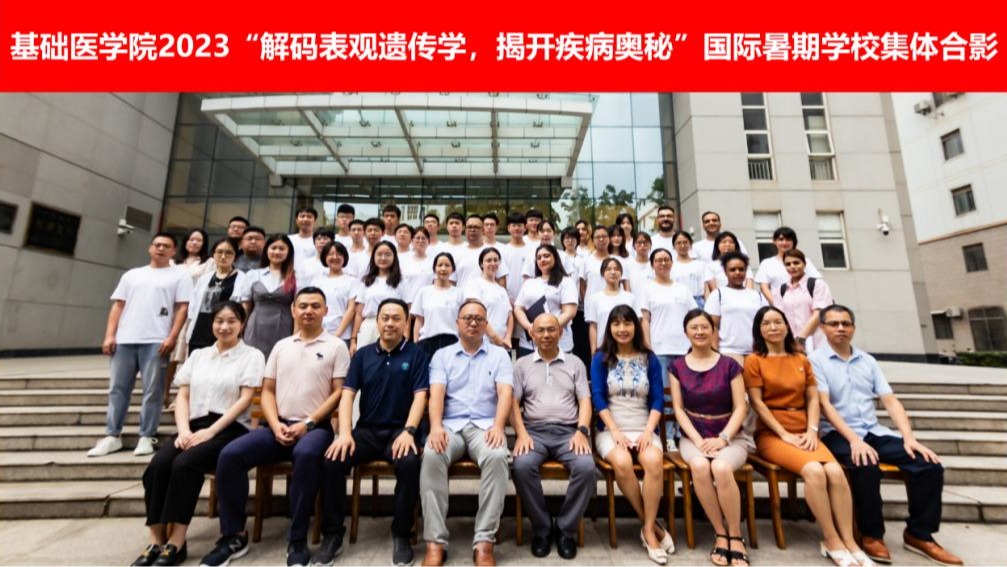On August 25, 2023, the closing ceremony of BMS 2023 "Decode Epigenetics and Reveal the Secrets of Disease" Global Summer School was held at PBL teaching building of Tongji Medical College. Prof. Fang Wang, Vice Dean of the School of Basic Medicine, together with five instructors from BMS including Prof. Rong Liu, Prof. Lingqiang Zhu, Prof. Zhangyin Ming, Prof. Mingfeng Li and Prof. Chao Fang attended the ceremony in person.

The moderator Liangqiang Zhu briefly reviewed the unforgettable journey of the summer school. As part and parcel of 2023 HUST Global Summer School, the Basic Discipline Growth Partner Summer School is offered by seven top-notch student training plan 2.0 bases in basic disciplines. As one of seven organizers, the School of Basic Medicine, Tongji Medical College, Huazhong University of Science and Technology, held its first Basic Discipline Growth Partner Summer School under the theme of "Decode Epigenetics and Reveal the Secrets of Diseases". BMS has invited 7 renowned professors from Boston University, Queen Mary University of London, University of Turku, Duke-NUS Medical School, Syracuse University and other prestigious universities in China and beyond to give online and on-campus lectures centering on three topics of neuroscience, tumor pathology and pathophysiology, and paper writing from August 21 to August 25, 2023. The summer school was organized in various formats including young scientist forum, well-crafted courses, group discussions and presentations, and provided an academically rigorous experience for all learners.
The 5-day summer school has attracted the participation of 78 undergraduates from 11 universities across 13 countries and regions around the world, including 49 Chinese students and 29 international students from different majors such as basic medicine, clinical medicine, forensics, pharmacy, biological science, biology and medicine, and public health laboratory sciences.
On the morning of August 21, BMS held the opening ceremony. Vice Dean Fang Wang gave an opening speech in which she encouraged all students to cooperate with each other and apply what you've learned from the courses to solving actual problems. Prof. Wang expected that every participant can be equipped with a broader global vision and better international competence through the intensive study of the summer school. Shortly after the opening ceremony, Prof. Jun Zhao and Prof. Yusong Guo, as the guest speakers of the young scientist forum, gave two warm-up lectures to online and offline students. They introduced the basic knowledge of epigenetics and helped students to get ready for the summer school in the following 5 days.


On the afternoon of August 21, Prof Jukka Westermarck, the international leading expert in protein phosphatase research area, the winner of Commander of the Order of the Lion of Finland, and Director of Turku Bioscience Centre, University of Turku, gave a lecture on what is protein phosphatase (PPs), the classification and regulatory characteristics of PPs, the role of PPs in cancer development, and the research progress in cancer therapy through using PPs as targets.
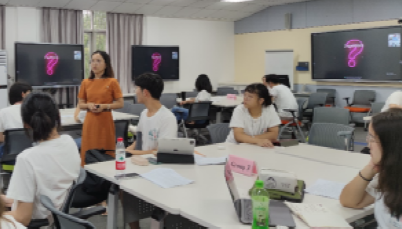
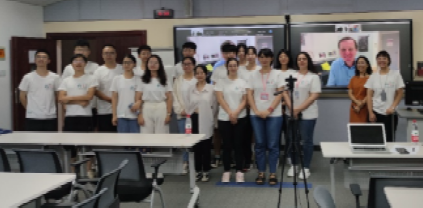
On the morning of August 22, Prof. Peng Lei from the State Key Laboratory of Biotherapy, West China Hospital, Sichuan University, gave an offline course entitled "Iron, Ferroptosis, and Alzheimer’s disease" at PBL teaching building room 6. Dr. Lei mentioned that treatments for Alzheimer's disease and other neurodegenerative disorders directed toward the prominent pathology have yet to prove effective in clinical trials. Neurochemical abnormalities that occur in the Alzheimer's brain, especially those associated with iron and selenium, warrant renewed attention as potential drug targets for the disease. The role of these elements in AD is not as simple as factors to facilitate Aβ aggregation, as proposed in the early stages of this line of research. In contrast, their dysregulation may result from AD onset and contribute to neuronal death in several aspects. Both elements are also involved in ferroptosis, and recent evidence has indicated the importance of ferroptosis in AD and other related disorders. These essential elements contribute to Alzheimer's pathophysiology and may be translated into therapeutics.
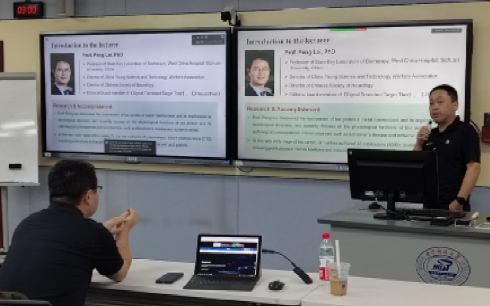
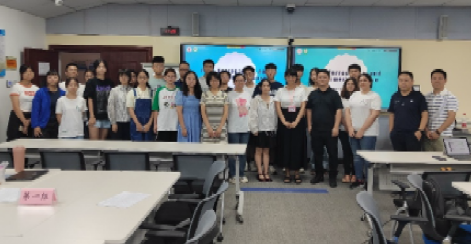
On the afternoon of August 22, Prof. Yan Liu from Nanjing Medical University said in her course "Studying neurological diseases by using human brain organoids" that human brain is the most complex organ, and many nervous system diseases are difficult to fully reproduce in animal models. Therefore, establishing an in vitro model of human brain-like tissue appears to be important for studying neurological diseases. Prof. Liu introduced to students present a variety of cultivation techniques for culturing region specific brain organoids, including cerebral organoids, ventral brain organoids, striatal organoids, and multi-region fused assembloids.
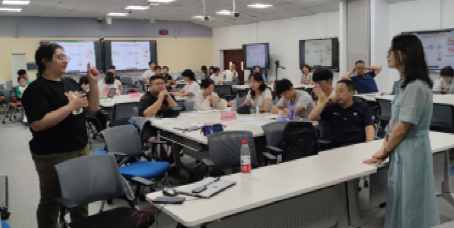

On the morning of August, 23, Prof. Hengye Man from Center for Systems Neuroscience, Department of Biology, and Department of Pharmacology & Experimental Therapeutics of Boston University gave a lecture online. In his speech "Regulation of AMPA receptor signaling and stability in synaptic plasticity", Prof. Man explained that the glutamatergic AMPA receptors (AMPAR) mediate most of the excitatory synaptic activities in the brain. AMPARs are heterotetromers composed of four subunits GluA1-GluA4, and the ion selectivity and permeability are controlled by the GluA2 subunits via mRNA editing. AMPARs undergo constant trafficking between the soma and dendrites, and between the cytosolic and synaptic domains.
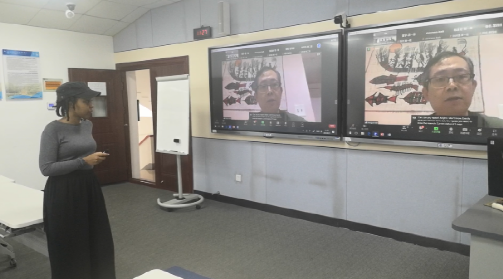
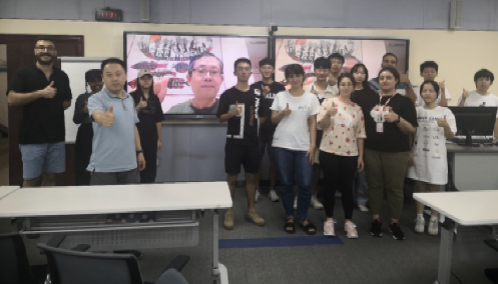
On the afternoon of August 23, Yong-Jie Lu, Professor in Molecular Oncology at Barts Cancer Institute, The Barts and London School of Medicine and Dentistry, Queen Mary University of London, gave a general introduction of liquid biopsy, and then give a more detailed overview of circulating tumor biomarkers. Based on the examples from his own research, he demonstrated how new concept can be formed and studies can be designed and conducted to develop new circulating biomarkers and potentially to resolve unmet clinical needs, particularly in circulating cancer cells.
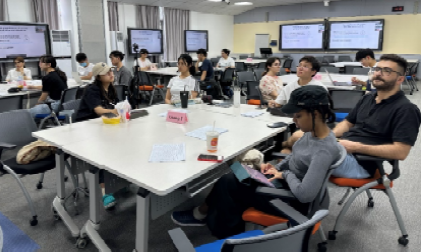
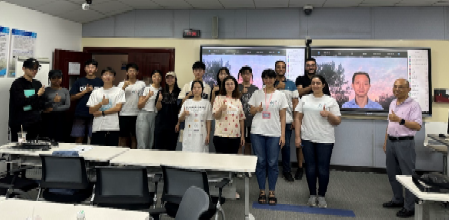
On the morning of August 24, Prof. Mian Cao from Duke-NUS Medical School gave a lecture entitled "Synaptic transmission: presynaptic mechanisms" and mainly focused on presynaptic mechanisms of synaptic transmission, the biological process by which neurons communicate with each other across a synapse. In the first part of his lecture, Prof. Cao talked about some basic knowledge of synaptic transmission, including structure and types of synapse; synaptic vesicle cycle (exocytosis/endocytosis); types of neurotransmitters; techniques to study presynaptic function. In the second part, he used his own lab's research projects as examples to discuss synaptic dysfunction in neurological disorders, particularly Parkinson's disease.
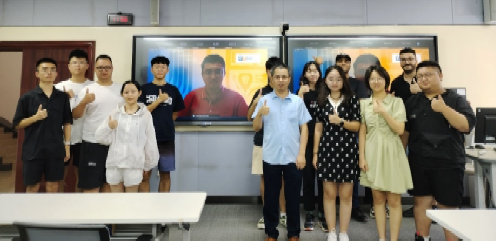
The last course was given by Prof. Lin Guo from the Department of Languages, Literatures and Linguistics of the College of Arts and Sciences of Syracuse University. During her lecture, Prof. Lin Guo provided a step-by-step illustration of how to conduct a systematic review and write a manuscript for publication, and answered the questions from the audience during the practicing session. Specifically, she talked about formulating research questions, searching databases with keywords, screening texts, extracting data, performing statistical analysis, and writing up results. These writing skill sets that Prof. Guo provided will be of significant value to the participating students whether their future career is a clinician or medical scientist.
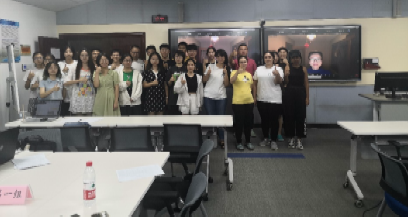
After completing the study of the seven courses, students were grouped into teams to give presentations on the morning of August 25th. Thanks to the week-long interaction, students were acquainted with each other and voluntarily organized themselves into teams of two who could choose their own topics by combining what they've learned from the summer school and their personal thinking and analysis. Each team made a 10-minute PPT presentation in turn and answered the questions from the instructors. After intense competition, a total of 10 students including Ke Liu and Sedghazar Zahra were recognized as “outstanding students' of the summer school.
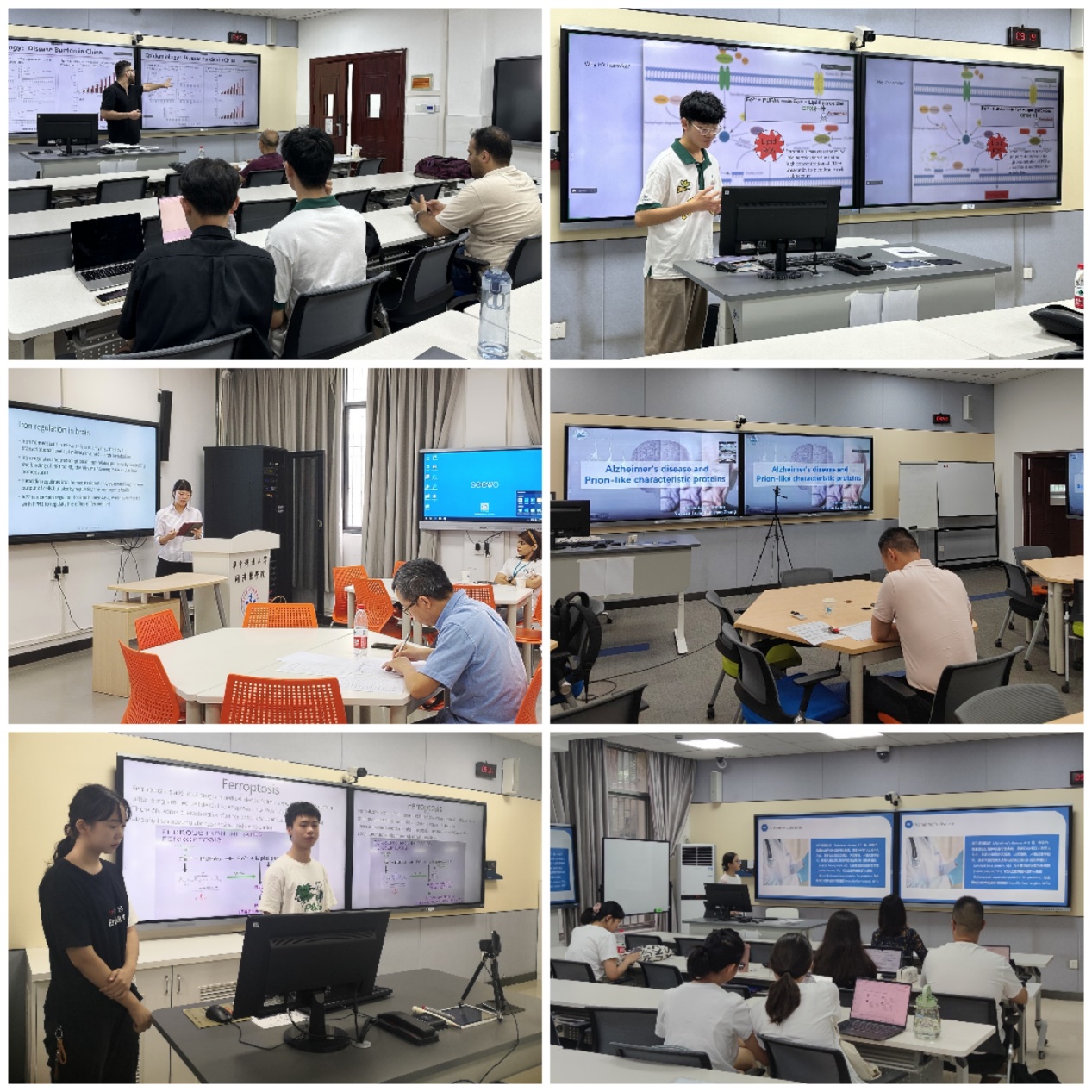
Vice Dean Fang Wang awarded outstanding students with the certificate of honor at the closing ceremony while five instructors from the School of Basic Medicine awarded the certificate of completion to those students who completed the summer school study.
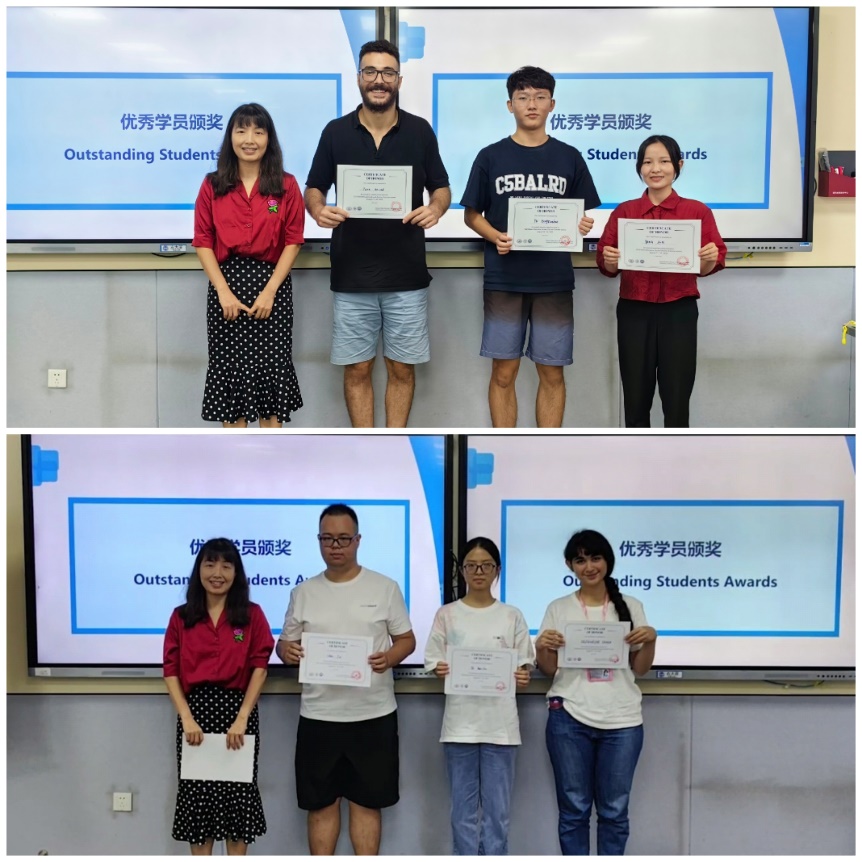
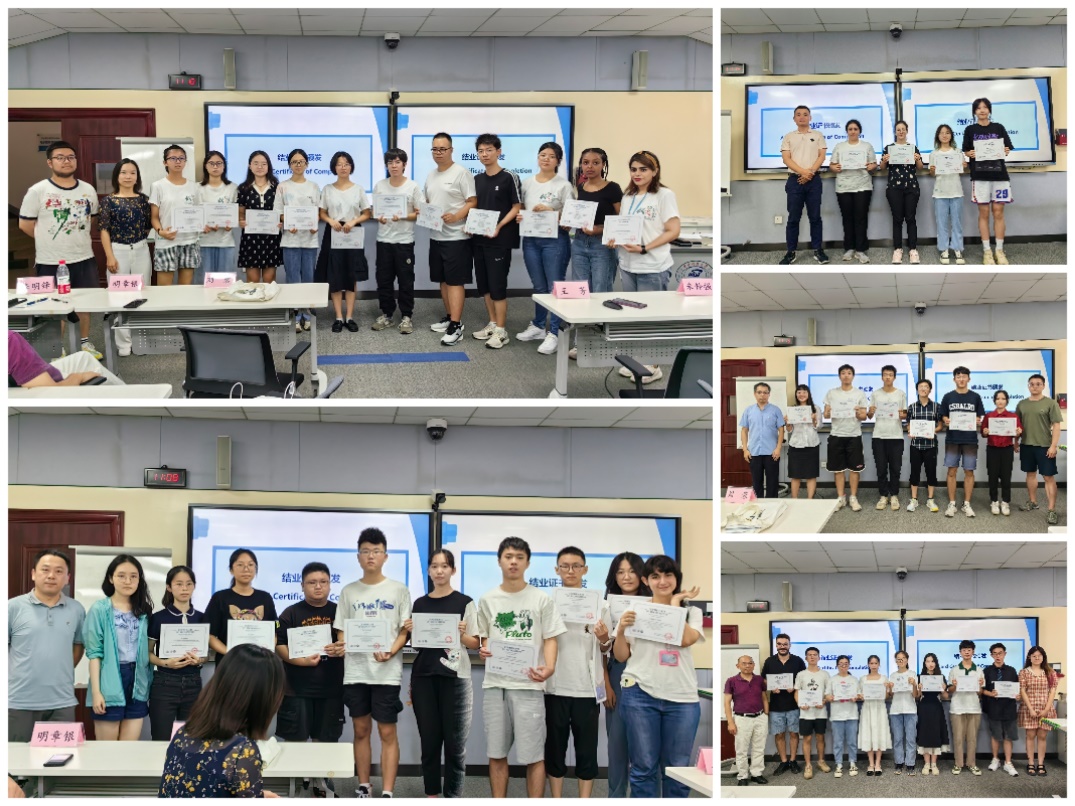
Some participants said that they have met like-minded partners in this summer school, became more capable to collaborate with each other, and learned the cutting-edge knowledge as well as broadening their international horizon.
